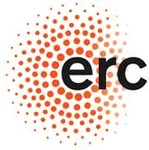Postdoctoral position on modelling heat transport processes in the subsurface

University of Rennes
The thesis will be carried out in Geosciences Rennes and supervised by Maria Klepikova and Kerry Gallagher. Géosciences Rennes (https://geosciences.univ-rennes.fr/en) is one of the leading European groups in the field of hydrogeology, as evidenced by the recently awarded ERC grants ReactiveFronts (T. Le Borgne), CONCRETER (M. Klepikova), CHORUS (J. Heyman), FEASIBLE (P. Steer) and ITN project ENIGMA (P. Davy). It will provide the ER with well-equipped office spaces including high performance computing cluster and all required computer packages, as well as dedicated engineer and grant managers.
Energy, Resources and the Environment (ERE)
Hydrological Sciences (HS)
The selected applicant will work at University of Rennes, France as a part of the recently funded ERC starting grant “CONCRETER” (Groundwater flow CONtrols on CRitical zonE ThErmal Regime). This project aims to assess the role of groundwater dynamics in shaping the thermal regime of the shallow subsurface where the water, element, energy and biological cycles interact.
The subsurface thermal regime is affected by fluctuations of ground surface temperature (GST) as well as by groundwater flow. Thermal anomalies produced by groundwater flow interact with those caused by downward conductive heat transfer in response to ongoing surface warming. This coupling increasingly hampers estimating hydrogeological effects [e.g., Irvine et al., 2016, https://doi.org/10.1002/2015WR017702] as well as palaeoclimate analysis based on borehole temperature profiles [e.g., Ferguson et al., 2006, https://doi.org/10.1029/2006GL026634]. Nevertheless, due to complexity related to this coupling in diverse environments and across a range of spatiotemporal scales, their coupled effect is generally ignored when interpreting borehole-depth temperature profiles [e.g., Vogt et al., 2014, https://doi.org/10.1093/gji/ggu282]. Through the development of more advanced models, the objective of this project is i) to coupled effects of ground surface temperature (GST) changes, topography, and lithology variations to investigate the individual contributions of conductive and advective heat transport processes, and ii) to link the forward model with a suitable multi-borehole inversion scheme [e.g., Hopcroft et al., 2009, https://doi.org/10.1111/j.1365-246×.2009.04192.x] to allow the decomposition of the measured temperature signal, namely the separation of the effects of fluid flow and of past ground surface temperature (GST) variations, which is a necessary step towards understanding the role of groundwater flow on temperature distributions at catchment scales.
Please include in your application:
- a brief account of the applicant’s research interests and motivation for applying for the position;
- the names and contact information for two referees;
- a CV;
- transcripts and diplomas showing completion of the master’s degrees;
- a publication list.
The application and appendices with translations into English or French must be sent to maria.klepikova@univ-rennes1.fr.
